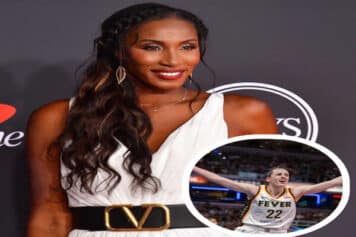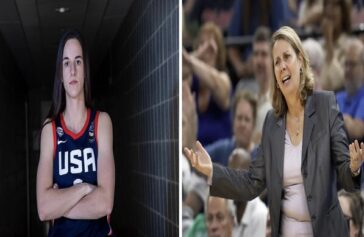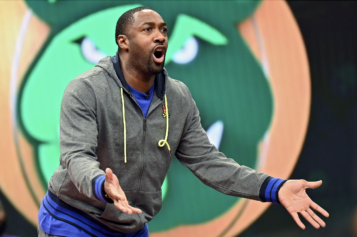The Professional Bull Riders Global Cup reflects the sport’s elite athletes, diversity, national pride, rising popularity and financial opportunity.
The Professional Bull Riders (PBR) Global Cup debuts this weekend on Feb. 9-10 in Arlington, Texas at AT&T Stadium, the NFL’s largest venue.
While bull riding is traditionally an individual hustle, the Global Cup puts a team twist on a sport that is growing in popularity and diversity each year.
The first day of the event was action-packed.
The first day of American Freestyle Bullfighting was filled with thrills and spills.
What will the next couple days hold? Watch it all LIVE on RidePass. pic.twitter.com/OuIRkgmlFX
— PBR (@PBR) February 9, 2019
The five-nation tournament is akin to the Olympics of bull riding. The event was originally launched in Edmonton, Alberta in November 2017, and made a stop in Sydney, Australia in June 2018.
It's a weekend jam-packed full of action and excitement at @tx_live for the PBR Global Cup Fan Zone.
Be a witness to the best of American Freestyle Bullfighting, Mini Bull Riding, Native American Fancy Dance and much more Feb. 8-10. pic.twitter.com/MckmOAV0T5
— PBR (@PBR) February 5, 2019
The Cowboys will be competing for a record purse, banding together in teams, riding for national pride and the title of “Toughest Nation on Dirt.”
This Global Cup in particular, reflects the growing diversity that exists in a sport that most folks would assume was dominated by white men. That’s actually a very outdated perception of professional bull riding.
Sean Gleason has been CEO of PBR for four years, but he joined 19 years ago and has also served as President and COO. Gleason says the entire sport of bull riding is growing and expanding, attracting non-traditional riders and athletes into the circuit.
“Historically, the cowboys and bull riders were all raised in rural environments and their parents had ties to rodeo and bull riding and they taught their kids at a young age, starting them out on sheep and moving to steers and smaller bulls and then working their way up to the big ones,” Gleason told the Shadow League.
“But today, because the money is so significant for professional athletes, we are seeing athletes come into the sport that really didn’t have that background,” he added. “They are learning at camps and through any means they can so they don’t necessarily all come these days from that rural background with a parent or somebody who has done it before.”
Black Magic
A perfect example of bull riding’s changing face is African-American rider Ezekiel Mitchell, one of the few Black bull riders seriously competing on the PBR circuit. Mitchell is just now cracking into Top 35 in the world and he actually learned how to ride bulls watching YouTube videos. Mitchell didn’t have any exposure to it, he saw it on TV.
In the heyday of America’s Old West, roughly a fourth of the cowboys were black. But today, the world of professional bull riding, a sport rooted in ranching culture, is predominantly white.
Mitchell went online and studied tutorials by former Professional Bull Riders (PBR) star Dustin Elliott.
“His family helped fashion him some machines to practice on,” Gleason said, “and then he met some folks that could get him on Bulls and he’s now rising through the ranks quickly.”
The New York Post reported that Mitchell, one of 11 kids, hung a makeshift bucking barrel from a tree to use for practice. A neighbor later helped him weld a metal bull together using a car suspension. Once he got into the game, Mitchell took off, winning his first career PBR event in November.
Native American Team
The Native American also has a history deep-rooted in rodeo and bull riding. In this Global Cup, Team USA will field two teams, Eagles and Wolves, the latter squad comprised exclusively of Native American riders.
The historic all-Native American team includes: Ryan Dirteater (Cherokee); Stetson Lawrence (Chippewa and Sioux); Keyshawn Whitehorse (Navajo); Cody Jesus (Navajo); Cannon Cravens (Cherokee); Justin Granger (Navajo); Colten Jesse (Potawatomi); and alternate Dakota Louis (Northern Cheyenne and Black Feet). They are coached by 2007 PBR World Finals event winner Wiley Petersen (Shoshone Bannock).
Mexico, Australia, Brazil and Canada will also field teams.
Here's a little video to get you fired up for Team Canada's pursuit of world dominance at the PBR Global Cup in Arlington, Texas.
Watch all the action, LIVE on RidePass >> https://t.co/CN3TFlNF9K https://t.co/xdwM9C6h07
— PBR Canada (@PBRCanada) February 9, 2019
The best bull riders in the world are fairly evenly matched between USA and Brazil, but in this Global Cup, the Native American team is going to have one of the strongest groups of competitors based on the rankings and world standings. So those will be the top three teams on paper.
“When we decided to bring the Global Cup here to US… we have such a large contingent of Native American riders that are among the best in the world and the fact that Native Americans are a sovereign nation here in the US and this is a huge source of pride for their tribes…we decided that two American teams should be represented,” said Gleason. “I believe that it’s the first time in the history of professional sports that an All-Native American team has been invited to compete in professional sports.”
Team USA Coach Wiley has competed against many Native American riders and understands their impact and historical significance to the culture of bull riding.
“…Humble, but they’re also very free spirited…really like to live free and experience life,” Wiley told the Shadow League. “Many Native Americans come from a place where they don’t have a lot and bull riding could be an opportunity for them to take their life to another level and help them reach things that they couldn’t before, more opportunity.”
As a former rider, Petersen also understands the risk and toughness involved in bull riding and he’s just honored to be able to be a part of history.
“As far as coaching goes…these guys are professionals, they’ve proven themselves in and out of the arena,” Petersen told The Shadow League. “I’m privileged to be associated with them and cultivating a strong team spirit. I enjoyed riding bulls, but I’m glad I don’t have to anymore. When you ride bulls, you get used to pain and discomfort. I have an easy job. I just stand back and tell them what bull to get on.”
Gleason has experienced the rise of bull riding first hand, from its humble beginning as a non-sponsored sport to its current rise under the sponsorship banner of Endeavor.
“It was more modest back then,” Gleason said. “We’ve been on a great growth trajectory in all 26 years that PBR has been around. But in the last five years we have seen pretty phenomenal growth largely due to the fact that we were acquired by Endeavor and have really been able to turn up the marketing exposure and opportunity. “
Get This Money
The PBR circuit has thousands of bull riders around the world, but PBR Professionals are annually somewhere between 750 and 1,000 riders deep, legitimately trying to earn their way through the ranks.
There are competitors and tours in five countries — US, Canada, Brazil, Australia and Mexico — that all compete in smaller events to work themselves up and through the system. They are trying to earn one of the 35 positions in the “Unleash The Beast Tour”, which is the premier televised bull riding tour that travels the country and is essentially the major leagues.
Those that work their way up are seeded in that tour and the world champion crowned at the end of the year wins something between $1.5 and $2.2 million. The money is sweet, but the danger is real deal Holyfield, so most riders are also addicted to the challenge and the adrenaline rush that comes along with trying to ride a 1,500 to 2,000 pound animal.
It’s similar to guys jumping off buildings and out of planes, and other actions sports where there’s a significant element of danger and risk. But the earning potential of Bull Riders appears to make it a much better opportunity then those sports.
“You can’t discount the money,” Gleason said. “ I don’t think that can be the No. 1 reason but the reality is that J.B. Mauney has earned 7.5 million in his career in just prize money and made over $10 million if you include endorsements and other opportunities.
PBR’s TV deal with CBS and CBS Sports Network has significantly boosted the sports’ accessibility and popularity over the years.
“Television exposure for us is across the country and a lot of people discovered our sport through the national broadcast and partnerships we have. We believe that there’s thousands of great athletes out there that have just never considered bull riding because they didn’t grow up around it…but would be very successful in it,” Gleason added. “We just have to keep spreading the message.”
The PBR Global Cup is definitely helping to do that.



